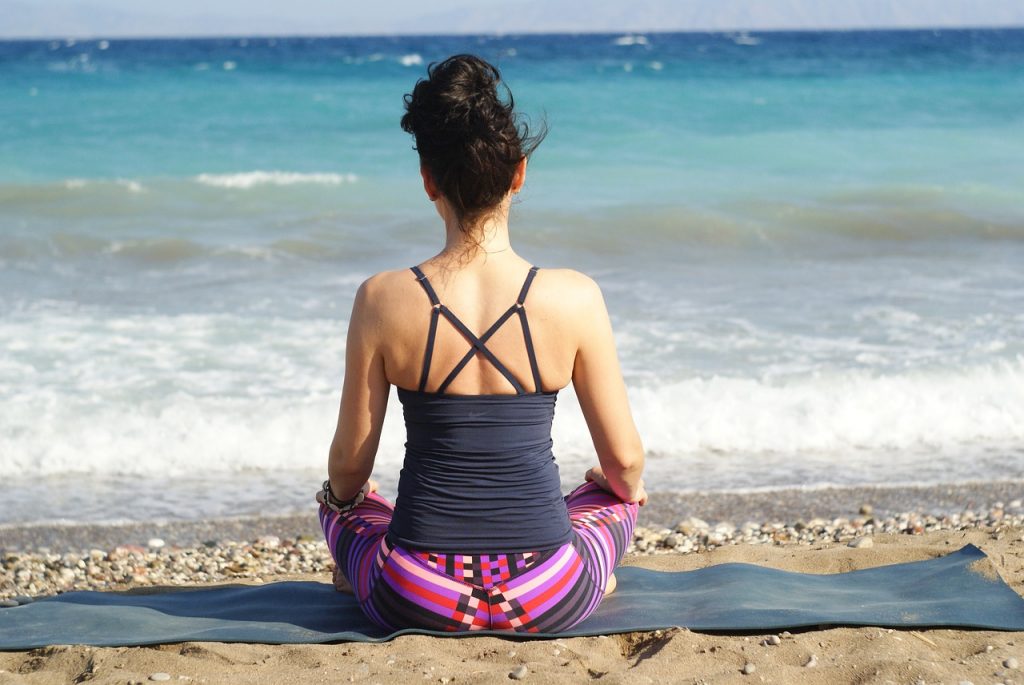- 3Shares
- 1. Practise Pranayama For Controlling Anger.Â
- 2. Eat A Pitta-Pacifying Diet.
- 3. Meditation Reduces Anger Issues.
- 4. Get An Ayurvedic Oil Massage.
- 5. Release Your Anger With Yoga.
- 6. Enjoy Some Aromatherapy.
When you learn how to control anger better, you can live much healthier and have happier relationships. Unmanaged anger can cause harm to those who come in contact with you. But you know who it harms the most? The person it arises in.
In Ayurveda, anger is linked to the element of fire and therefore, Pitta dosha. Too much of it can lead to a host of health problems – insomnia, high blood pressure, migraines, ulcers, liver problems, and cardiovascular disease to name a few. Ayurveda lays out some simple but powerful anger management techniques. We encourage you to give them a try.
Anger Management Tips
1. Practise Pranayama For Controlling Anger.
Pranayama (a set of yogic breathing techniques) is immensely helpful for those with anger issues. These breathing techniques cleanse your energy channels, cool the body down, calm the mind, and relieve the internal burning. Click on the links for YouTube tutorials:
- Chandra Bhedana (Left Nostril Breathing)
- Sheetali Pranayana (Cooling Breath)
- Sitkari Pranayama (Hissing Breath)
- Diaphragm Breathing
- Nadi Shodhana (Alternate Nostril Breathing)
2. Eat A Pitta-Pacifying Diet.
One of Ayurveda’s most common anger management tips is to follow a soothing and cooling diet. Believe it or not, the things you feed your body can contribute a great deal to anger issues. Alcohol, caffeine, pungent food, excessively salty and sour food, as well as red meat can make you angry. On the other hand, these foods soothe the fire:
- Dark leafy greens
- Coconut
- Cucumber
- Berries
- Sweet and juicy fruits
- Astringent foods like cauliflower and chickpeas
- Herbs such as mint, turmeric, coriander, dill, and fennel
- Cow milk and ghee
- Bitter foods such as cumin and kale
3. Meditation Reduces Anger Issues.
Meditation can show you how to control anger. This ancient relaxation technique helps us face our internal conflicts, recognise our emotions, and release them in a safe and peaceful manner. Meditation can significantly reduce irritability since it keeps the mind calm. It reduces impulsiveness and enables you to address issues more mindfully. Moreover, it helps you reach the roots of your anger issues – it may be things like guilt, shame, past traumas, or simply the inability to process difficult emotions.

4. Get An Ayurvedic Oil Massage.
Ayurvedic oil massage is incredibly healing for the body as well as mind. It can squeeze out the tension and build up of negativity from your body. It has instantly calming effects, rejvenates the body, and grounds the mind. You can either massage yourself or visit an Ayurvedic clinic. To reduce anger, the best oils are that of coconut, rose, lavender, sunflower, and castor.
5. Release Your Anger With Yoga.
Another excellent solution on how to deal with anger is yoga. Yoga removes blockages of Prana (life force energy) and eases the flow of energy. It helps your body get rid of toxins as well as negative emotions. Some poses are wonderful heart openers. Most importantly, yoga grounds as well as calms the mind. Click on the links for YouTube tutorials:
- Bhujangasana (Cobra Pose)
- Adho Mukha Svanasana (Downward Dog)
- Savasana (Corpse Pose)
- Balasana (Child’s Pose)
- Lotus Pose (Padmasana)
- Viparita Karani (Legs Up The Wall)
6. Enjoy Some Aromatherapy.
How to control anger? A great way is to simply enjoy the fragrance of flowers and essential oils. You’ll be surprised by how calming and refreshing they can be! Aromatherapy has been used for a long time in Ayurveda to treat excess anger and stress. So, go ahead and try oils like:
- Lavender
- Chamomile
- Patchouli
- Lemon balm
- Lilac
- Sandalwood
- Ylang ylang
Note: Posts on Ayurvedum are solely for the purpose of sharing the goodness of Ayurveda and bringing awareness about natural and healthy living. Please do not substitute it for professional medical advice. Ingredients discussed can interfere with certain medications. So, before using anything to treat yourself, always consult an Ayurveda doctor or practitioner.






Leave a Reply